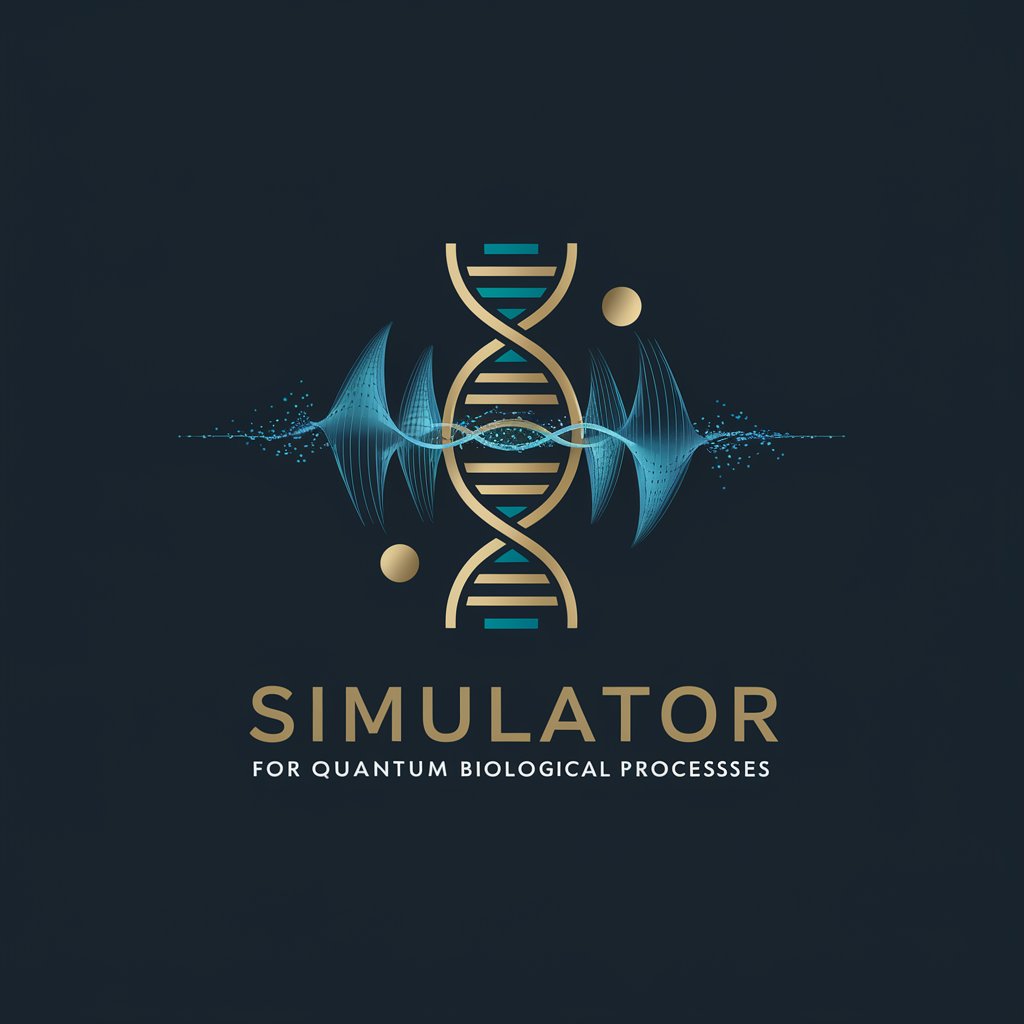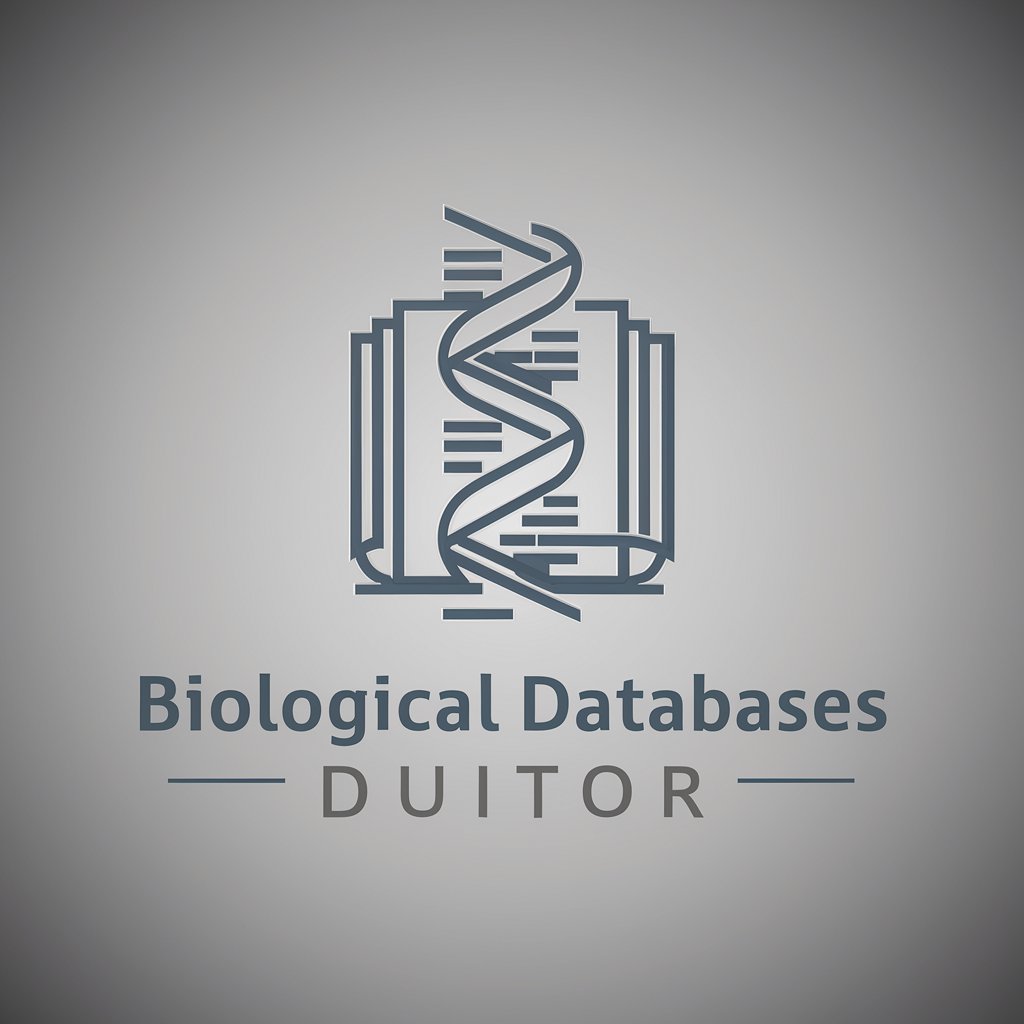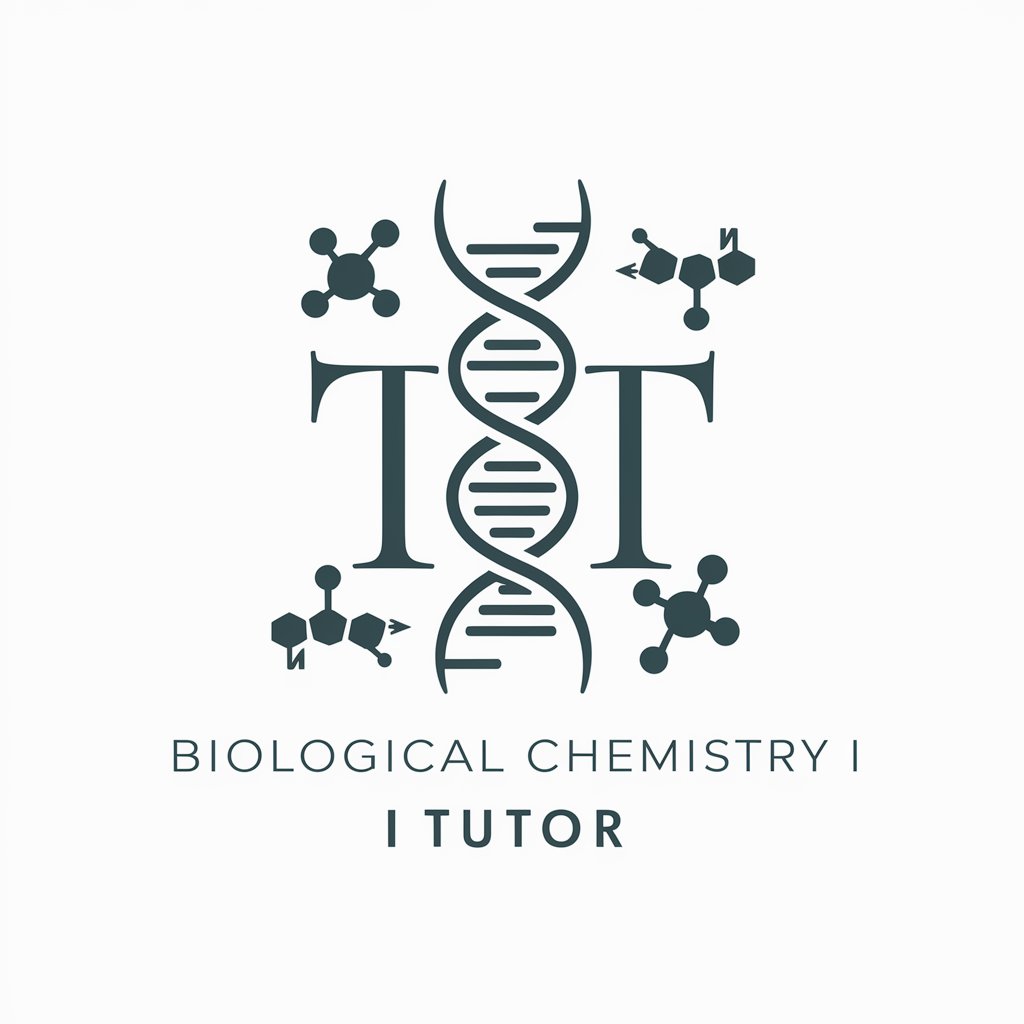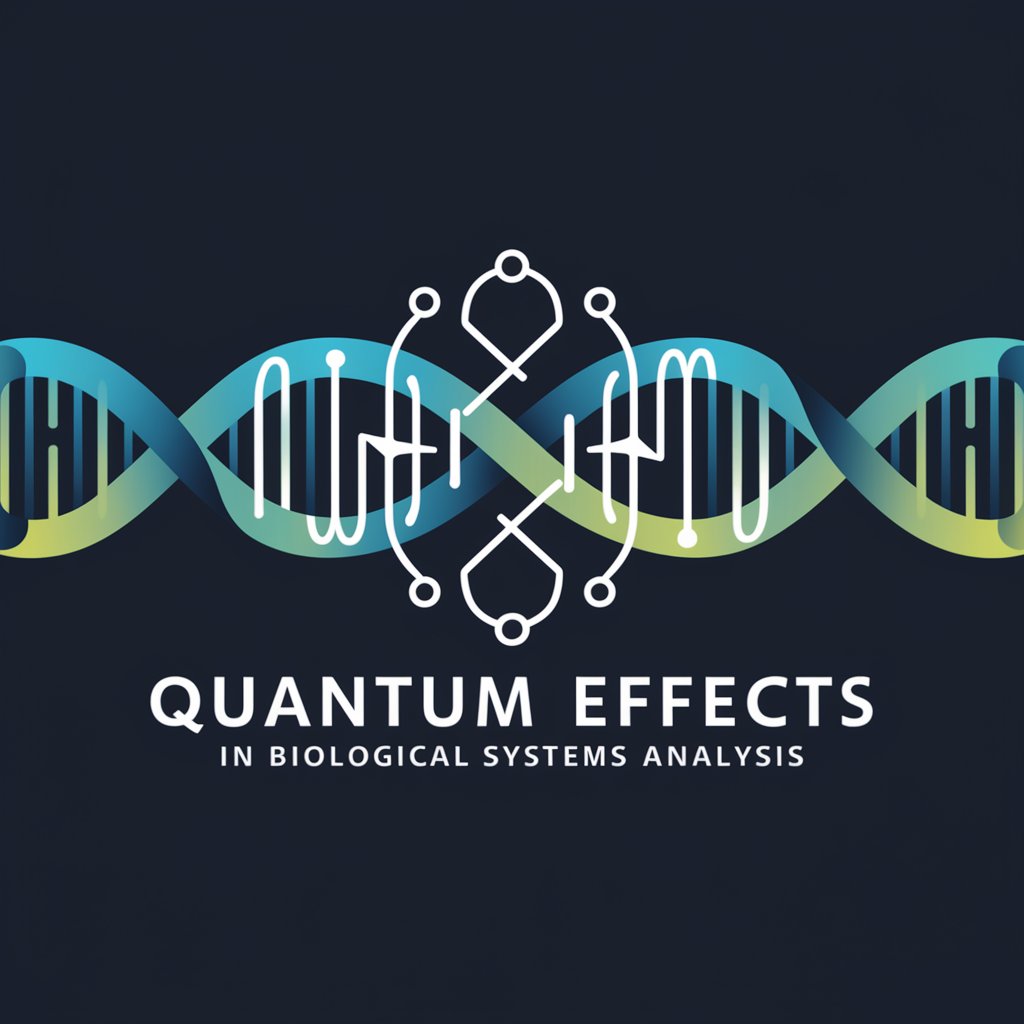Simulator for Quantum Biological Processes - Quantum Biology Simulation

Welcome! Let's explore the quantum realm of biological processes.
Simulate quantum biology with AI precision
Explain the role of quantum mechanics in photosynthesis.
How does electron tunneling contribute to enzyme activity?
Describe the significance of quantum coherence in biological systems.
What are the current theories on quantum effects in DNA mutation?
Get Embed Code
Simulator for Quantum Biological Processes
The Simulator for Quantum Biological Processes is a specialized computational tool designed to model and analyze quantum phenomena within biological systems. This includes the exploration of quantum coherence and decoherence in proteins, electron tunneling in enzymatic reactions, and energy transfer processes within cells, such as those occurring during photosynthesis. The simulator utilizes principles from both quantum physics and molecular biology to provide accurate simulations of these complex processes. For example, it can simulate the behavior of electrons in the photosynthetic complex, offering insights into how quantum effects influence the efficiency of sunlight conversion into chemical energy. Powered by ChatGPT-4o。

Core Functions of the Simulator
Quantum Coherence Modeling
Example
Simulation of exciton dynamics in photosynthetic complexes
Scenario
In photosynthesis, the simulator can model how quantum coherence affects the efficiency of energy transfer among chlorophyll molecules within the light-harvesting complexes.
Electron Tunneling Analysis
Example
Exploring electron transfer in respiratory enzymes
Scenario
The tool can analyze how electrons tunnel between different redox centers in complex I of the mitochondrial electron transport chain, impacting the overall energy production in cells.
Simulation of Enzymatic Reactions
Example
Modeling of catalytic mechanisms in enzymes like cytochrome P450
Scenario
This function allows the simulation of the electron transfer and substrate interaction within the enzyme, aiding in the understanding of its role in drug metabolism and synthesis.
Target User Groups
Academic Researchers
Scientists in fields like biophysics, quantum biology, and molecular biology can use this simulator to test hypotheses, design experiments, and interpret the quantum mechanical aspects of biological processes more deeply.
Pharmaceutical Developers
Professionals in drug development can utilize the simulator to understand how enzymes interact with substrates at a quantum level, potentially leading to the development of more effective and specific drug therapies.
Educational Institutions
Teachers and students can use the simulator as an educational tool to visualize and learn about the quantum mechanical processes that underlie vital biological functions, thus enhancing both teaching and learning experiences.

How to Use Simulator for Quantum Biological Processes
Start with a Trial
Access a free trial at yeschat.ai without needing to log in or subscribe to ChatGPT Plus.
Define Your Model
Identify the biological process or system you wish to explore. This could involve processes like photosynthesis, enzyme reactions, or protein folding.
Set Parameters
Configure the simulation parameters, including environmental conditions and molecular structures, to match your experimental setup or hypothesis.
Run Simulations
Execute the simulation. Monitor the quantum biological processes, such as electron transfer or energy pathways, using the visual and data outputs provided.
Analyze Results
Utilize the tool's analytics features to interpret the simulation outcomes. Compare these with experimental data to validate hypotheses or to design new experiments.
Try other advanced and practical GPTs
Biological Databases Tutor
Empowering Research with AI-Driven Database Guidance

Biological Chemistry I Tutor
Empowering your chemistry studies with AI

Biological Scientists Assistant
Empowering Research with AI Insight

Toast
Bread as Your Canvas, AI as Your Brush

West Coast Styles
Powering insights into West Coast Hip Hop

Smoke Buddy Business
Elevate creativity with AI power

Quantum Effects in Biological Systems Analysis
Unraveling Biology with Quantum AI

Naturopathic research assistant
Empowering naturopathic insights with AI.

Controversial Historian
Unravel History with AI

Who Should Debate This? by DebaTable
Power debates with AI insights

Trend Scout
Discover Trends with AI Insight

Controversial Issues in Modern History
Explore History with AI

FAQs about Simulator for Quantum Biological Processes
What is quantum biological processing?
Quantum biological processing involves the application of quantum mechanics principles to biological systems to understand phenomena such as electron transfer, coherence in photosynthesis, and enzyme catalysis at a quantum level.
Can this simulator model any type of biological process?
While the simulator is versatile, it is specifically designed for processes where quantum mechanics play a significant role, such as electron tunneling in enzymes or energy transfer in photosynthetic complexes.
What are the hardware requirements for running the simulator?
The simulator is cloud-based, requiring only a stable internet connection and a standard web browser. No specific hardware is necessary, making it accessible from virtually any computer.
How accurate are the simulations compared to real-world experiments?
The simulations aim to be as accurate as possible by incorporating up-to-date quantum and biological data. However, as with any model, results should be validated through experimental data when possible.
Is there support for academic users?
Yes, academic users can benefit from documentation, tutorials, and possibly even partnerships for advanced research projects, facilitating the integration of the simulator into educational and research settings.
